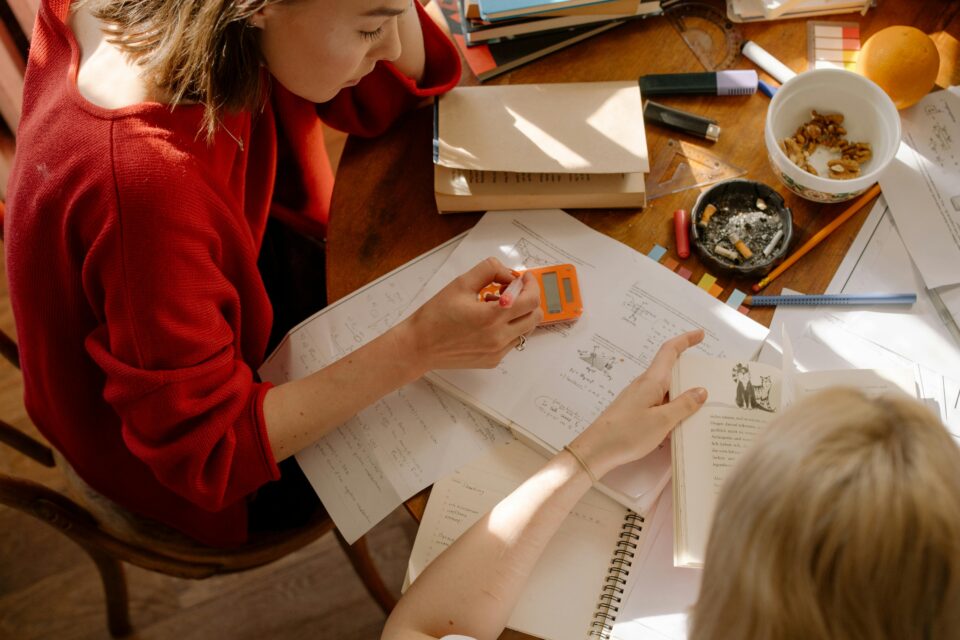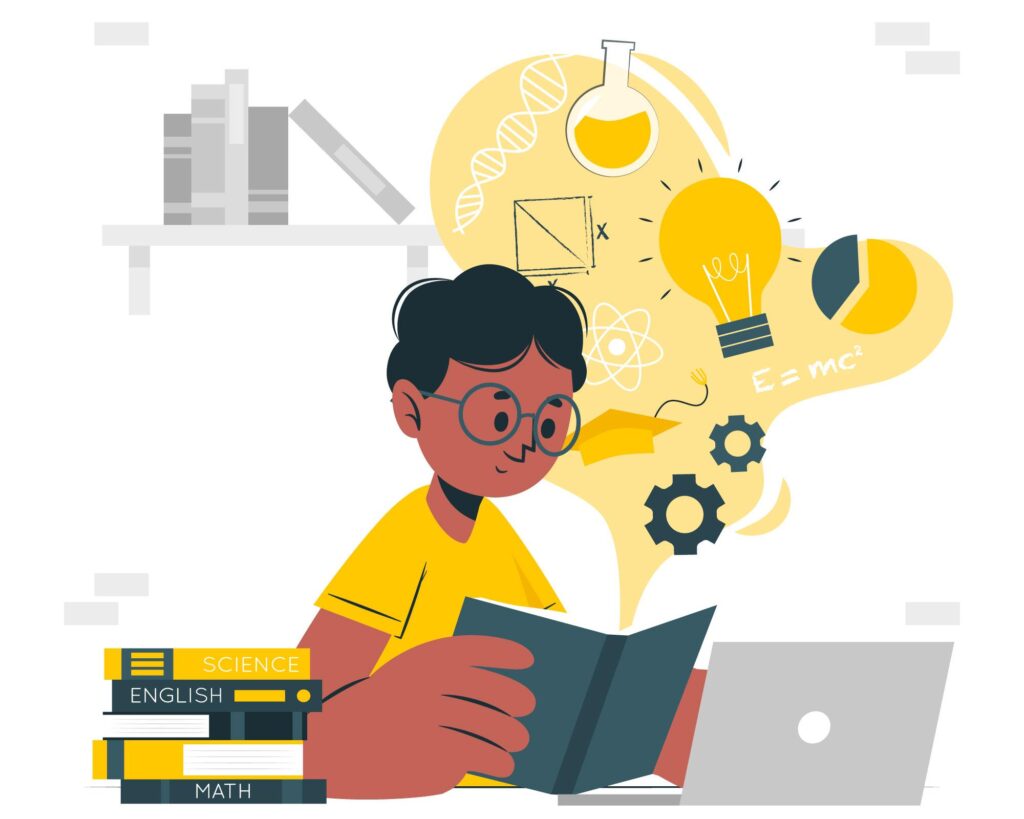Physics is an interesting subject to learn, though it could be quite complex when learning it on your own, With determination, you can get through the course. Regardless of whether you are in high school or college, there is a need to learn how best to study physics, given that it leads to enhanced comprehension and performance. In this particular article, we will help you understand how to study physics more effectively and become a successful student.
How to Study Physics

1. Understand the Fundamentals
For an effective study of physics, focus on basic concepts such as mathematics, scientific notation and mechanics. Make sure to get a clear grasp of motion, kinematics, forces, dynamics, energy, momentum, collisions, rotational motion and gravity before going further in the course.
2. Writing a catchy and structured study schedule
One has to be very consistent when dealing with lessons that have to do with physics. Set up some sort of routine for studying and adhere to it. Avoid reliance on time-based study, that is, cramming, and instead study in shorter sessions more often. This approach is useful in retaining candidates and eradicating cases of burnout.
3. Active Learning Techniques
Just reading is not sufficient if one is to study physics. Active learning entails writing down the lectures in detail and when reading, one is also required to take notes from the textbooks. Explain main ideas in your own words. Draw concept maps to organize the relationship between the ideas in your head.
4. Make Learning Physics Fun
Physics is, in essence, a problem of science. Spend some extra time doing various kinds of problems, discover the power of simple ideas, how they work, and so on. In the process of practicing or tutoring, do not solve only the tasks set as homework. Use simple problems and then complex problems in the instruction. Forget worrying about the right answer and concentrate more on the process of solving the problems. Look at solved examples in textbooks, and in an individual capacity, attempt to redo those solutions without consulting the guide.
5. Practice Problem-Solving
In fact, physics is one of the fields of science that has more problems and, hence, more solutions than one could imagine. Spend more time solving various kinds of problems, attempting to understand the concepts and strategies involved in the problems. It is important to practice not only the homework given but a number of problems to enhance on your skills. Begin with simpler questions and move up the scale. Learning must be a concept rather than the answer to the problem. Look at solved problems in mathematical texts and attempt to redo such problems with your eyes closed.
6. Leverage Online Resources
Online resources are vast in the digital world to help you out in the process of enhancing your learning. Use online sources as reinforcement for your textbook, which is accompanied by notes from the lecture. Research more lessons on the internet, educational sites and games with additional instructions, problems and fun activities. These resources can corroborate your knowledge and provide explanations from other sources.
7. Form Study Groups
Collaboration is key! Form study groups with your classmates that are as interested in physics as you are. Asking questions and sharing opinions will broaden your knowledge, and compare to your prior knowledge or what you have currently, it will offer new view points. Another is that explaining things helps not only improve one’s understanding of the information but also knowledge retention.
8. Math is the Key!
To carry out an effective study of physics, it is good to have a good foundation in mathematics. Areas like algebra, trigonometry, calculus, geometry, and linear algebra can be of a lot of help when studying physics. When doing physics assignments, try to ask your tutors to help explain or clarify some areas that you do not understand, as they might better understand them.
9. Utilize Visual Aids
Physics is one of the subjects that involves so much use of visuals. Ensure that you use illustrations, such as diagrams, graphs and illustrations, as much as possible. These tools help one to understand and memorize issues that would otherwise be hard to grasp. With visualization, you understand the practical implications of concepts.
10. Review Regularly
Review is important for the long-term retention of facts and principles of physics, which is why it is responsive to consistent review. Summarize what has been covered after each lecture, after each day of the week or after each week if the learning is scheduled for a week. You should arrange for periodic revision sessions, during which you will review the material that was taught earlier. Flashcards, concept maps and summary notes may also be employed in order to ensure that major concepts and associations are not forgotten.
11. Focus on Conceptual Understanding
However, memorization of these formulas is necessary, but understanding the things behind them is more essential. In studying physics principles, it’s good sometimes to keep on asking “why” and “how”.
12. Stay Organized
Get your study resources, notes, and practice sessions well structured for easier learning. This organization will spare you some time and enable you to easily get what you want without much hassles. Adopt the study timetable, thus allocating certain periods of the day for physics studying and others for revision.
13. Seek Expert Guidance
Perhaps using the services of a competent tutor in physics would do a lot better. Physics has professional tutors who give lessons depending on your level of learning to ensure you master every topic given to you. A tutor can provide more information, clear misunderstandings, guide you and focus on the difficulties in order to eliminate them.
14. Prepare for Exams Strategically
When writing exams, start early and don’t fail to develop a study schedule. Past examinations and practice tests must also be looked at. Make the emphasis not on the ability to memorize the material but on the ability to comprehend it. Study more within the time frame of a real examination to learn time management.
15. Leave Time For It
Failure in mock and practice examinations could be as a result of poor exposure or little time spent in revision. In an effort to acknowledge negative feedback, practice exams assists in identifying areas to improve but proper revision is after a class. The most effective way of revising is to do it from time to time without having a pile of notes and topics to cover and asking for advice from a physics tutor as to how best to revise.
16. Cultivate Good Eating Habits and Exercise regularly
It is therefore wise to put into practice good etiquette in order to have a strong and healthy body and mind for studying. Make sure to take enough rest, eat healthy, exercise often and avoid working to the extent of getting burned out.
17. Use of physics in real-life scenarios
Relate physics ideas to the real world. Pay attention to the laws of physics at work within your surroundings. Read on physics news and discoveries. Visit the science museums and exhibitions that may interest you. Perform basic home science experiments at home. Discover all the areas of technology and other industries in which physics can be applied. By doing so, this approach can make the subject more interesting and assist in retrieving principles about that subject.
18. Master Laboratory Techniques
Gain experience in designing experiments and recording data. Understand how to correctly employ scientific tools. Learn about errors and their analysis, as well as about uncertainty in measurements. Acquire practice methods of producing well-written and clearly understandable lab reports
19. Improve Scientific Writing Skills
Simplify the complex physics ideas and know how to write them in an effective manner. Take time to practice how to present data and results compellingly. Learn about scientific papers. Skills such as technical report writing should also be cultivated.
20. Update Yourself to Current Research
Skim current articles about the latest advances in physics in popular science magazines. Take time to go for seminars or guest lectures in physics. Find correlations between what is taught in a physics class and the latest data. Consider undergraduate research opportunities
21. Utilize Technology and Software
Make an attempt to understand how to use scientific calculators, as they are very useful. Explore physics simulation software. Ensure that you learn about the different tools for analysis of data. Make use of graphing software to be able to see the physical relationships.
22. Cultivate a Growth Mindset
Take challenges as opportunities in disguise. It is extremely important to consider mistakes as part of the process of learning. Break the tasks into doing the best you can and rejoice in your achievements. Endure through challenges, and when necessary, get assistance.
Conclusion
Studying physics is a process that requires acquiring skills, so it may take some time. So, by attempting those strategies and maintaining good posture, we can enhance our knowledge and performance in physics. Nevertheless, you should be persistent with this kind of practice, as it may be rather unproductive initially. If you follow the right routines and take a proper angle to studying, then the world of physics would be a piece of cake.


